Best Blackeyed Susan Companion Plants
Title: The Best Companion Plants for Black-Eyed Susans
Introduction:
Black-eyed Susans (Rudbeckia hirta) are a popular choice for gardens because of their bright yellow flowers and easy care. They thrive in full sun and well-drained soil, and they can tolerate a variety of conditions. Black-eyed Susans also attract butterflies and other pollinators, making them a valuable addition to any garden.
If you're planning to add black-eyed Susans to your garden, you may be wondering what companion plants to choose. The right companion plants can help to improve the health and appearance of your black-eyed Susans, and they can also attract even more pollinators.
In this blog post, we'll discuss some of the best companion plants for black-eyed Susans. We'll also provide some tips on how to choose the right companion plants for your specific garden.
Main Content:
Here are some of the best companion plants for black-eyed Susans:
- Coneflowers: Coneflowers (Echinacea purpurea) are another popular choice for gardens. They have similar growing conditions to black-eyed Susans, and they attract the same pollinators. Coneflowers also help to deter pests, such as deer and rabbits.
- Coreopsis: Coreopsis (Coreopsis spp.) come in a variety of colors, including yellow, orange, and pink. They are easy to care for and drought-tolerant, making them a good choice for hot, dry climates. Coreopsis also attract butterflies and other pollinators.
- Gaillardia: Gaillardia (Gaillardia spp.) have bright, colorful flowers that bloom for a long time. They are also drought-tolerant and attract butterflies and other pollinators. Gaillardia can grow quite tall, so it's a good idea to plant it in the back of your garden.
- Sunflowers: Sunflowers (Helianthus annuus) are a tall, showy plant that can add a touch of drama to your garden. They are also easy to grow and attract birds and butterflies. Sunflowers can grow quite tall, so it's a good idea to plant them in the back of your garden, or near a fence or wall.
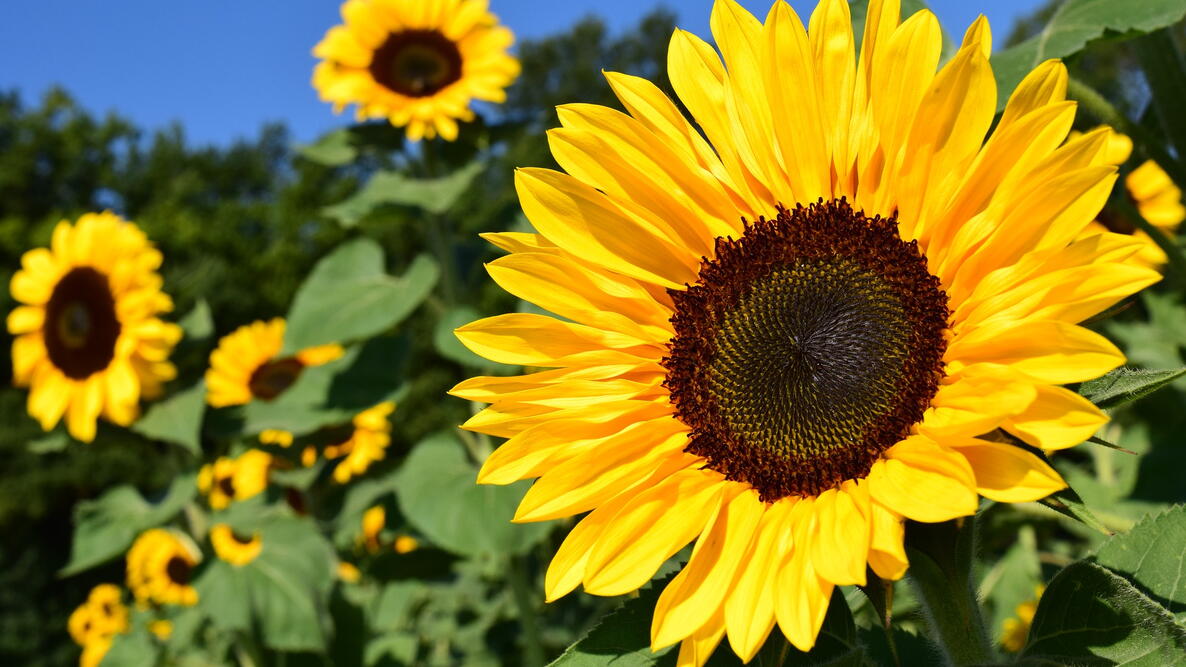
- Yarrow: Yarrow (Achillea millefolium) is a hardy perennial that blooms for a long time. It is also deer-resistant and attracts butterflies and other pollinators. Yarrow can grow quite tall, so it's a good idea to plant it in the back of your garden, or near a fence or wall.

- Lavender: Lavender (Lavandula spp.) is a beautiful and fragrant herb that can add a touch of elegance to your garden. It is also deer-resistant and repels pests, such as mosquitoes and moths. Lavender can be grown in pots or in the ground.

- Bee balm: Bee balm (Monarda spp.) is a native North American herb that attracts bees and butterflies. It also has medicinal properties and can be used to make tea. Bee balm can grow quite tall, so it's a good idea to plant it in the back of your garden, or near a fence or wall.
- Zinnia: Zinnias (Zinnia spp.) come in a variety of colors, including yellow, orange, pink, and red. They are easy to care for and attract butterflies and other pollinators. Zinnias can be grown in pots or in the ground.
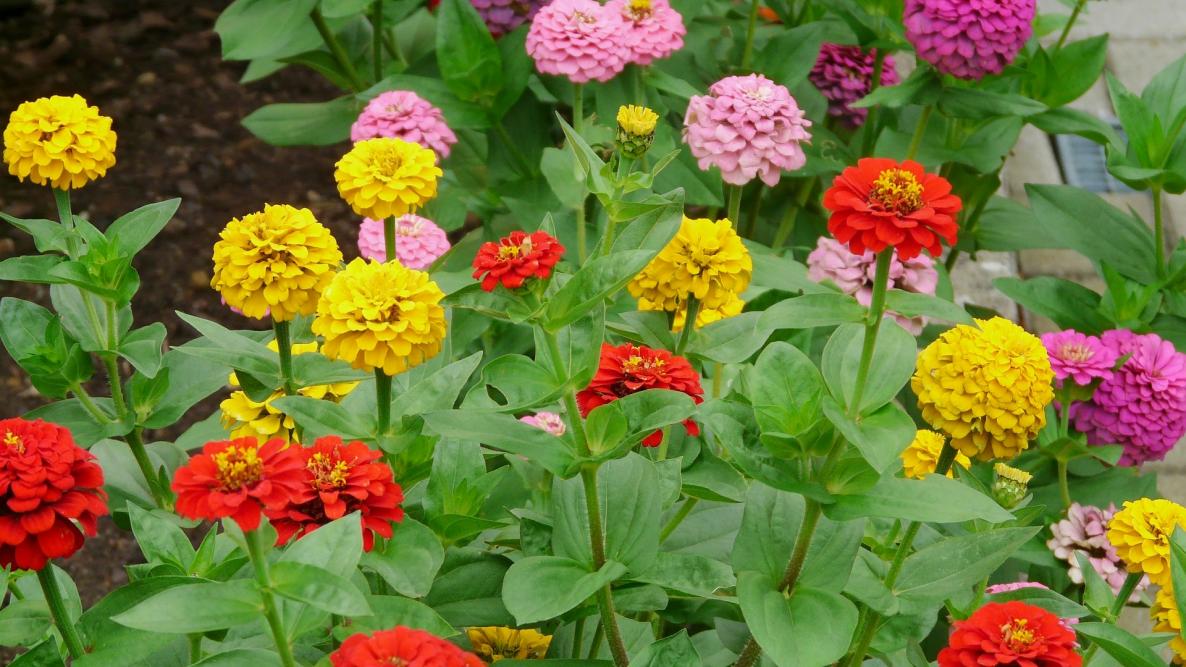
Conclusion:
These are just a few of the many companion plants that can be grown with black-eyed Susans. When choosing companion plants, it's important to consider the size, color, and growing conditions of the plants. You should also plant companion plants that attract the same pollinators as black-eyed Susans.
With a little planning, you can create a beautiful and bountiful garden with black-eyed Susans and their companion plants.
Black-eyed Susans are a beautiful addition to any garden, but they can be even more stunning when planted with companion plants. Companion plants are those that grow well together and can provide benefits to each other. Some good companion plants for black-eyed Susans include:
- Marigolds: Marigolds help to deter pests and attract pollinators.
- Yarrow: Yarrow helps to improve the drainage of soil and attract pollinators.
- Coneflowers: Coneflowers help to attract pollinators and provide a visual contrast to black-eyed Susans.
- Lavender: Lavender helps to repel pests and improve the fragrance of the garden.
- Bee balm: Bee balm attracts pollinators and helps to improve the drainage of soil.
For more information about black-eyed Susan companion plants, please visit Home Gardening.
FAQ of black eyed susan companion plants
What are some good companion plants for black-eyed Susans?
Some good companion plants for black-eyed Susans include:
- Yarrow: Yarrow is a hardy plant that can help to deter pests from black-eyed Susans. It also blooms at the same time as black-eyed Susans, so they can complement each other's colors.
- Coneflower: Coneflowers are another hardy plant that can help to deter pests from black-eyed Susans. They also bloom at the same time as black-eyed Susans, and their purple flowers can add a pop of color to the garden.
- Zinnias: Zinnias are a colorful and easy-to-grow plant that can add a splash of color to the garden. They also bloom at the same time as black-eyed Susans, and they can help to attract pollinators.
- Marigolds: Marigolds are another easy-to-grow plant that can help to attract pollinators. They also have a strong scent that can help to deter pests from black-eyed Susans.
- Bee balm: Bee balm is a nectar-rich plant that can attract pollinators. It also blooms at the same time as black-eyed Susans, and its purple flowers can add a pop of color to the garden.
What are the benefits of planting companion plants with black-eyed Susans?
There are several benefits to planting companion plants with black-eyed Susans. Companion plants can help to:
- Deter pests: Some companion plants, such as yarrow and coneflower, have strong scents that can help to deter pests from black-eyed Susans.
- Improve soil quality: Some companion plants, such as marigolds and bee balm, can help to improve soil quality by adding nutrients and breaking down organic matter.
- Attract pollinators: Many companion plants, such as zinnias and bee balm, are nectar-rich and can attract pollinators, such as bees and butterflies. Pollinators are important for a healthy garden, as they help to pollinate plants and produce fruits and vegetables.
- Create a more attractive landscape: Companion plants can be used to create a more attractive landscape by adding different colors, textures, and heights to the garden.
How do I plant black-eyed Susan companion plants?
When planting black-eyed Susan companion plants, it is important to consider the following factors:
- The size of the plants: Some companion plants, such as coneflowers, can grow quite large, so it is important to plant them in an area where they will have enough space to grow.
- The sun exposure needs of the plants: Black-eyed Susans need full sun, so it is important to plant companion plants that also need full sun.
- The soil conditions: Black-eyed Susans prefer well-drained soil, so it is important to plant companion plants that also prefer well-drained soil.
Once you have considered these factors, you can plant your black-eyed Susan companion plants by following these steps:
- Prepare the soil by tilling it to a depth of 12 inches.
- Add compost or other organic matter to the soil to improve drainage and fertility.
- Space the plants according to their mature size.
- Plant the plants in the prepared soil, watering them well after planting.
How do I care for black-eyed Susan companion plants?
The care requirements for black-eyed Susan companion plants will vary depending on the specific plants you are growing. However, some general care tips include:
- Water the plants regularly, especially during hot, dry weather.
- Fertilize the plants every few months with a balanced fertilizer.
- Deadhead spent flowers to encourage new blooms.
- Protect the plants from pests and diseases.
With proper care, your black-eyed Susan companion plants will thrive and add beauty and interest to your garden for years to come.
Image of black eyed susan companion plants
- Zinnia. Zinnias are tall, colorful flowers that bloom in the summer. They are a good companion plant for black-eyed Susans because they have similar growing conditions and attract pollinators.

- Coreopsis. Coreopsis is another tall, colorful flower that blooms in the summer. It is a good companion plant for black-eyed Susans because it attracts pollinators and deters pests.

- Echinacea. Echinacea is a spiky, daisy-like flower that blooms in the summer. It is a good companion plant for black-eyed Susans because it attracts pollinators and helps to repel deer.
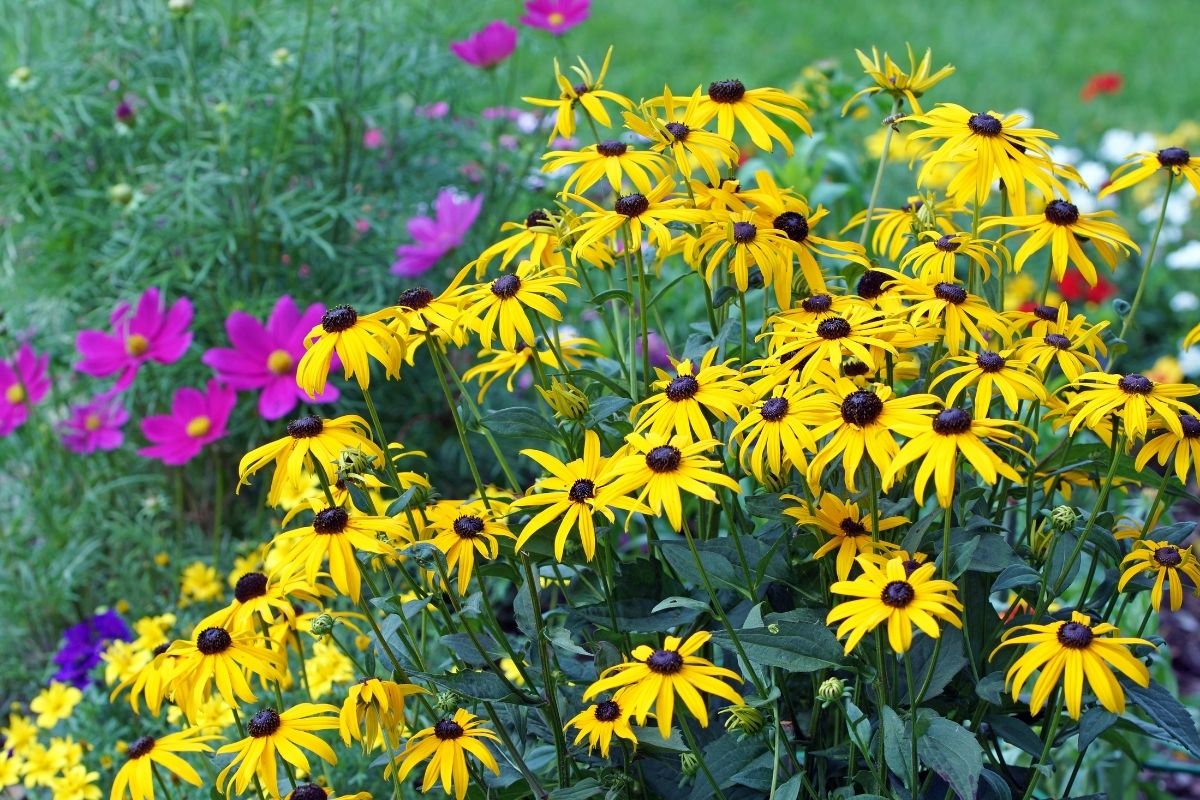
- Bee balm. Bee balm is a tall, mint-scented flower that blooms in the summer. It is a good companion plant for black-eyed Susans because it attracts pollinators and deters pests.
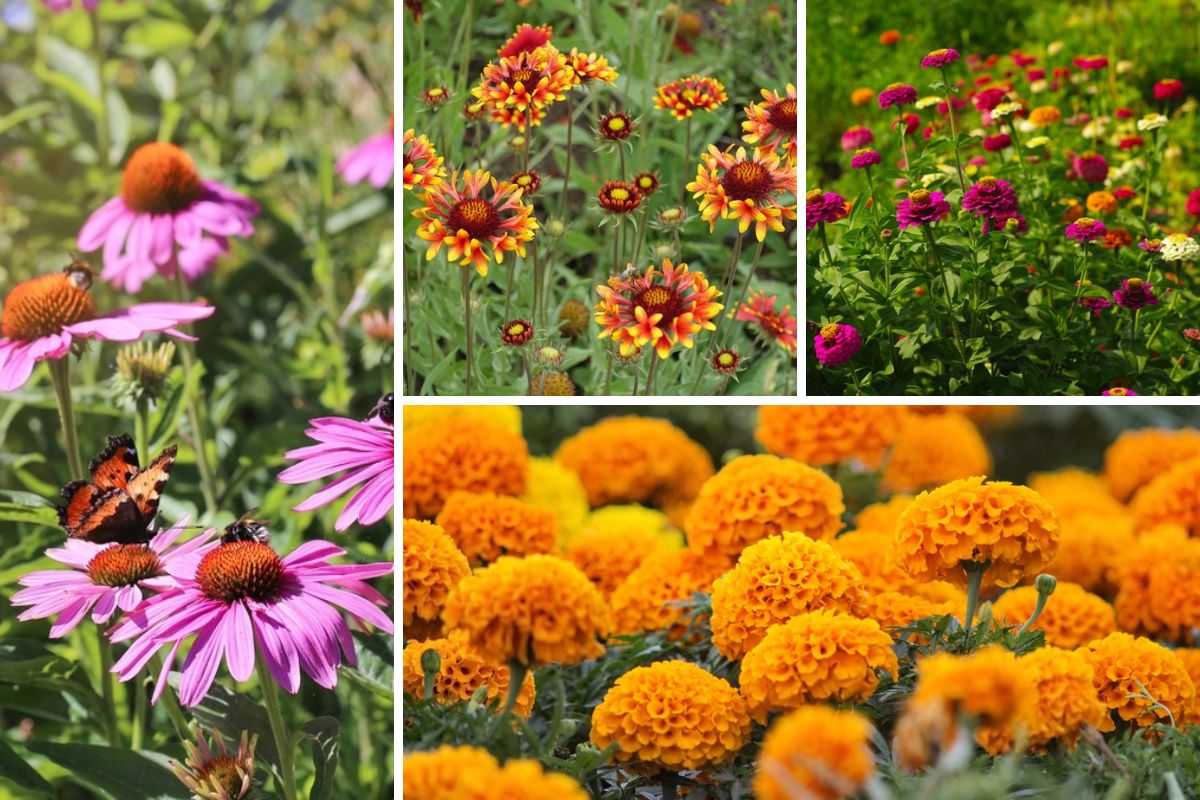
- Coneflower. Coneflower is a tall, daisy-like flower that blooms in the summer. It is a good companion plant for black-eyed Susans because it attracts pollinators and helps to repel deer.

- Salvia. Salvia is a tall, colorful flower that blooms in the summer. It is a good companion plant for black-eyed Susans because it attracts pollinators and deters pests.
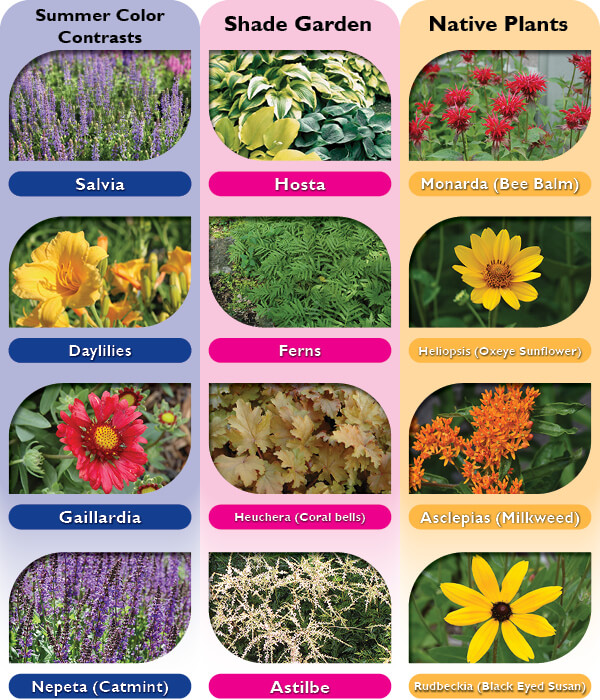
- Yarrow. Yarrow is a low-growing, white, daisy-like flower that blooms in the summer. It is a good companion plant for black-eyed Susans because it attracts pollinators and helps to deter pests.

- Lavender. Lavender is a low-growing, purple flower that blooms in the summer. It is a good companion plant for black-eyed Susans because it attracts pollinators and helps to repel pests.

- Sunflower. Sunflowers are tall, yellow flowers that bloom in the summer. They are a good companion plant for black-eyed Susans because they have similar growing conditions and attract pollinators.

- Marigold. Marigolds are tall, orange flowers that bloom in the summer. They are a good companion plant for black-eyed Susans because they have similar growing conditions and attract pollinators.
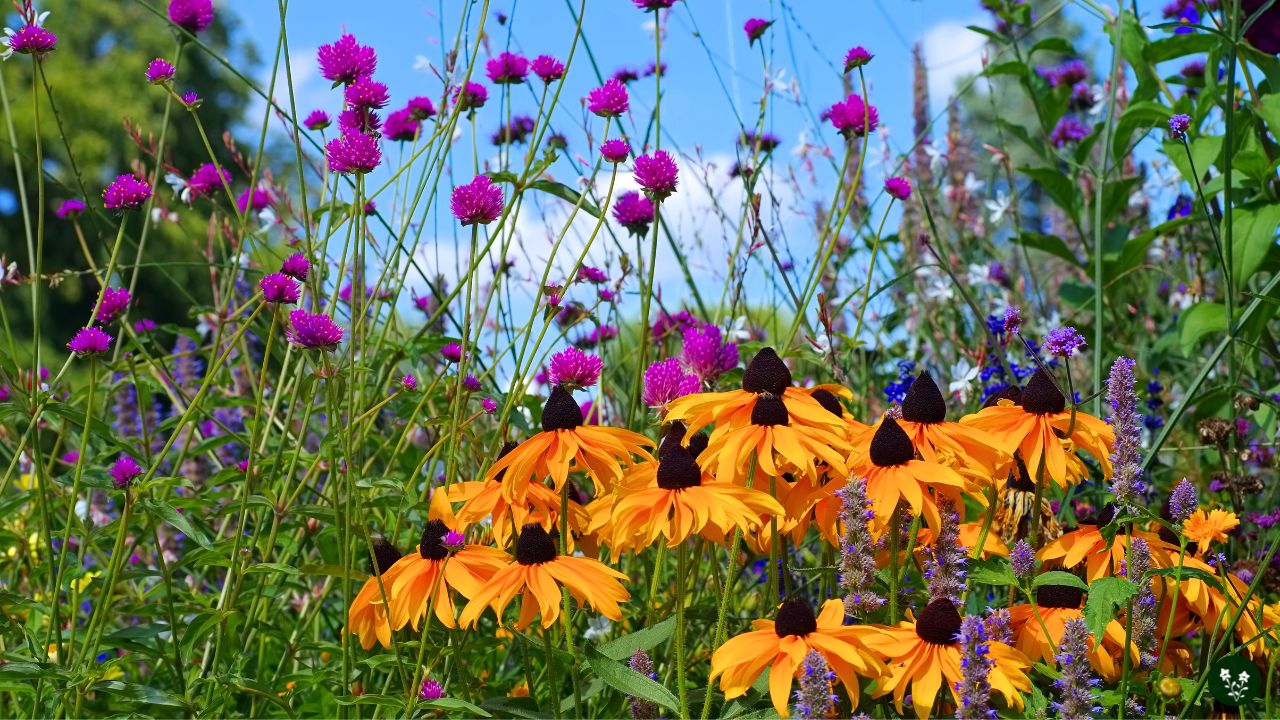

Post a Comment for " Best Blackeyed Susan Companion Plants"